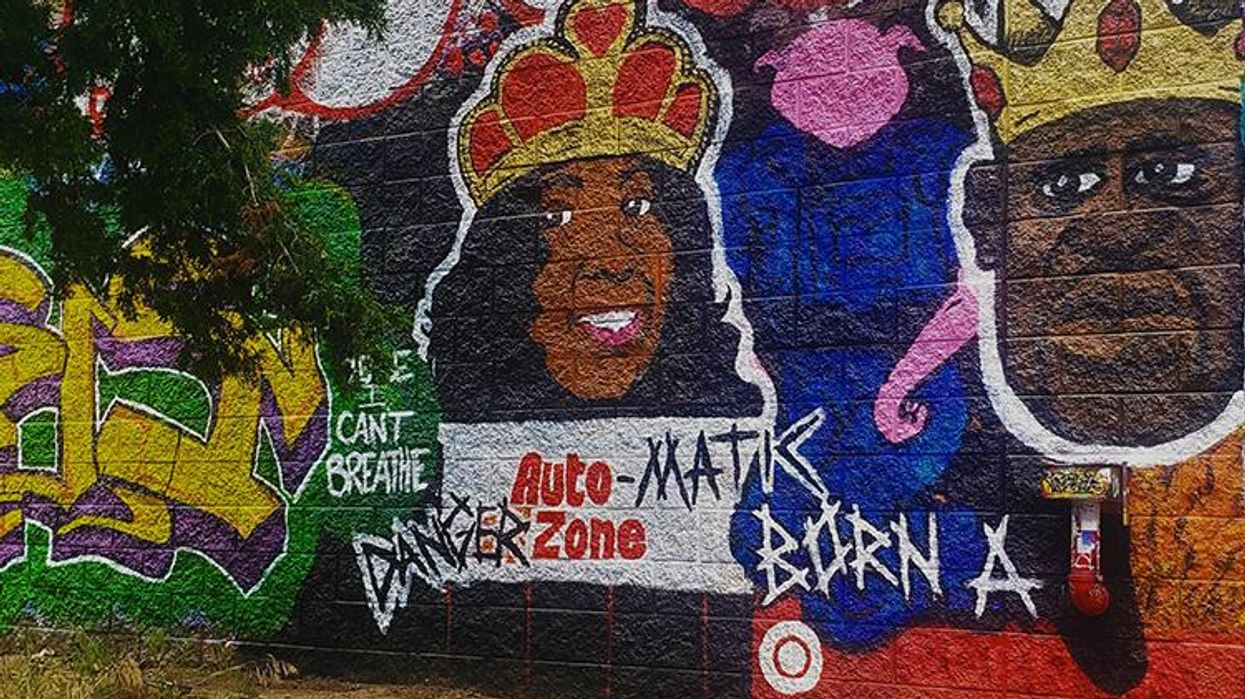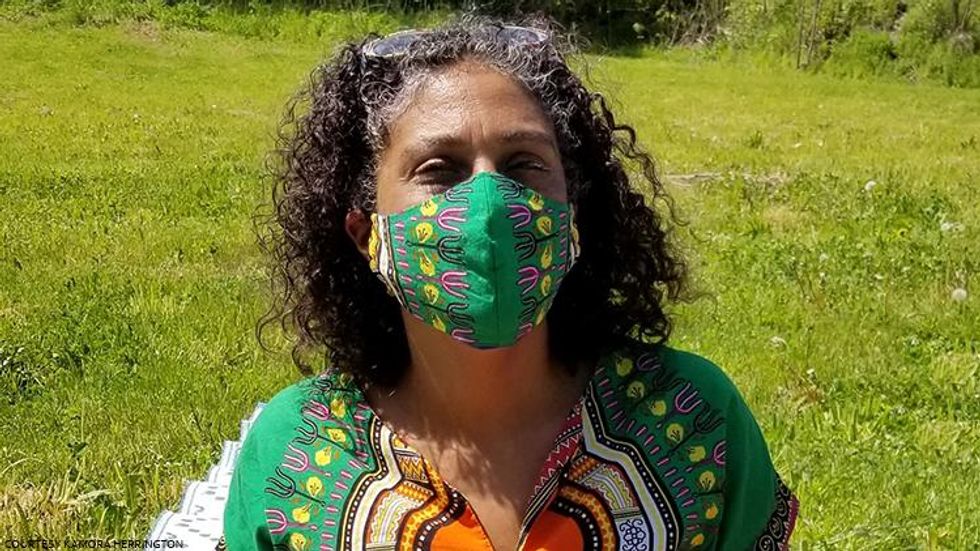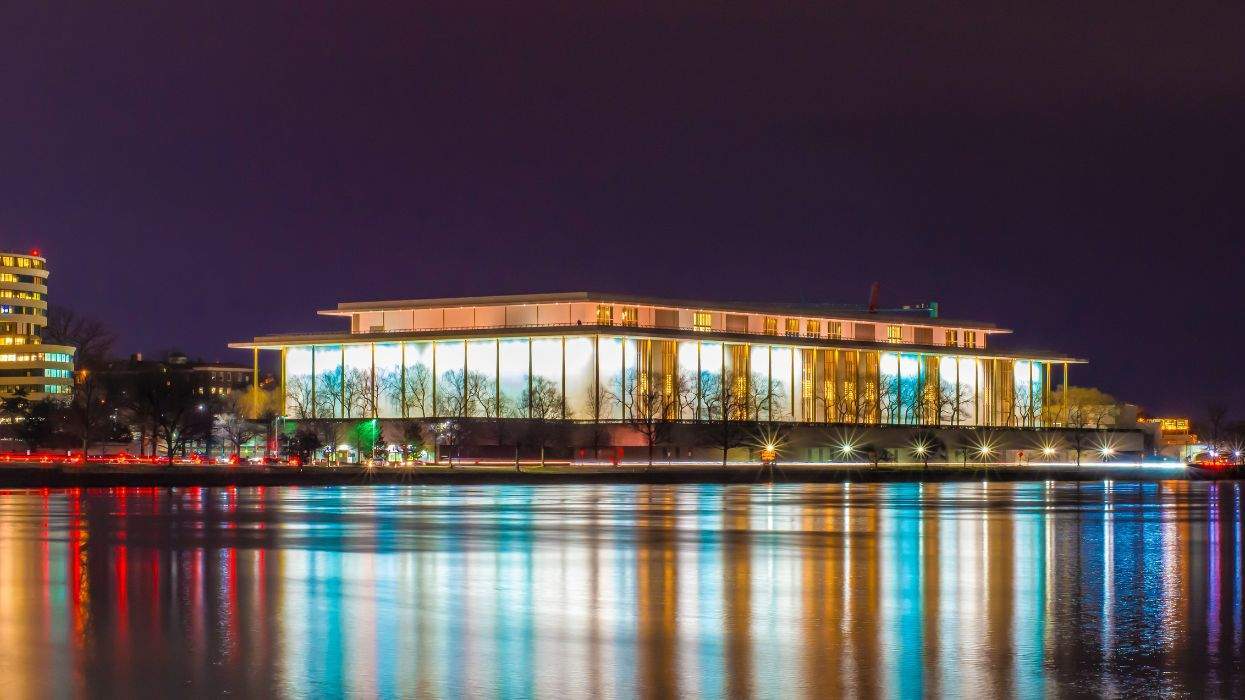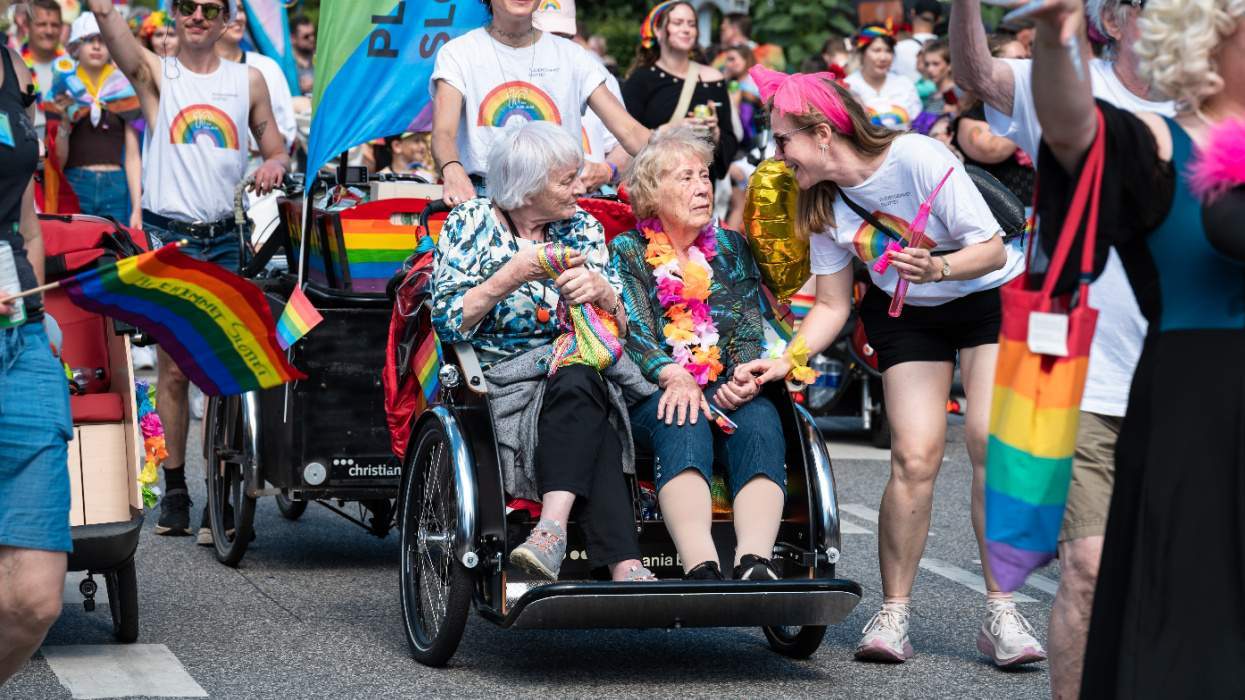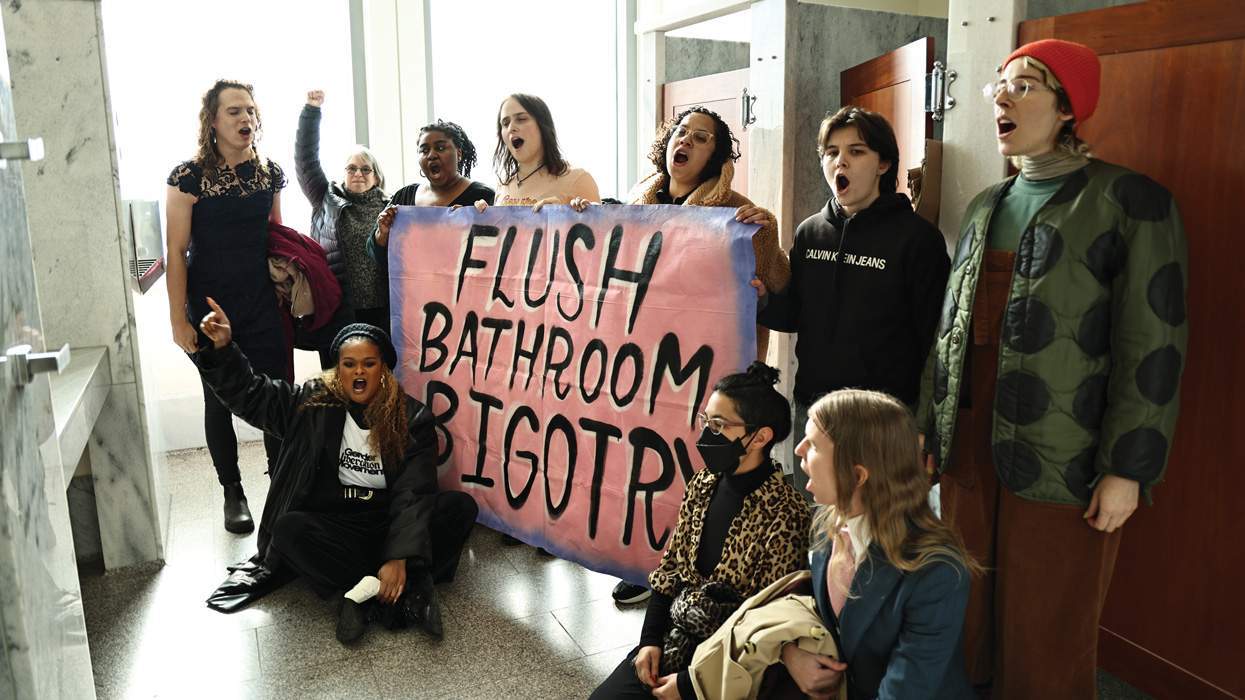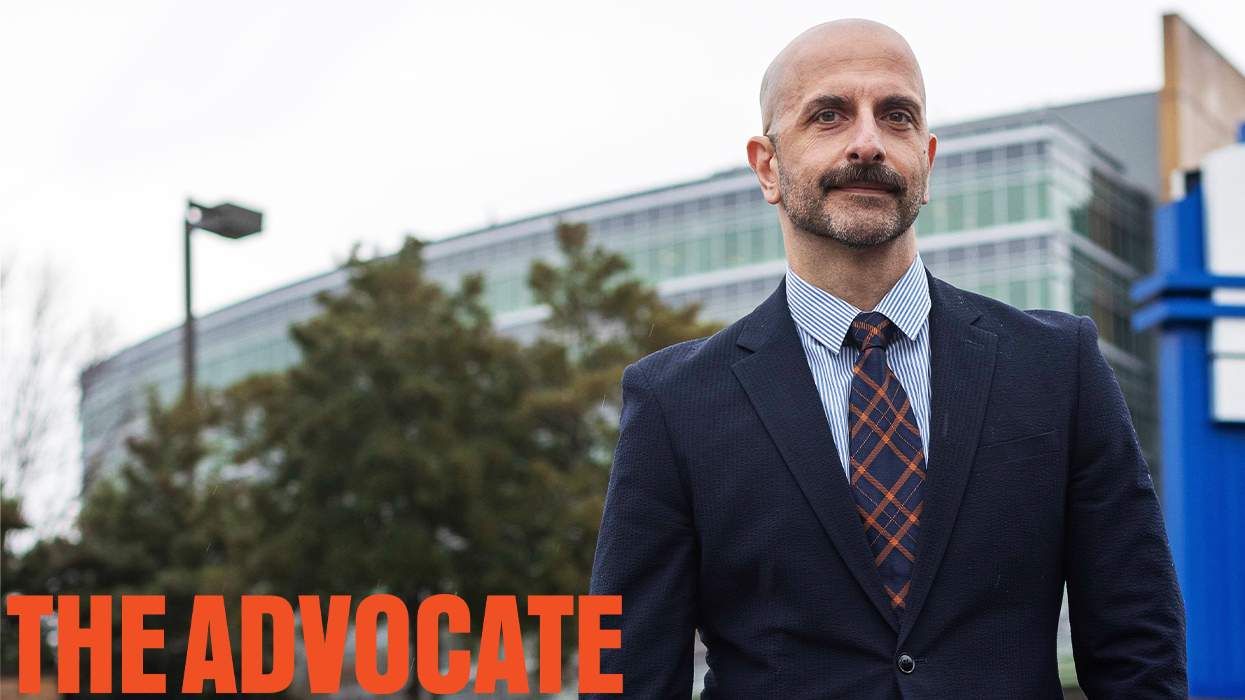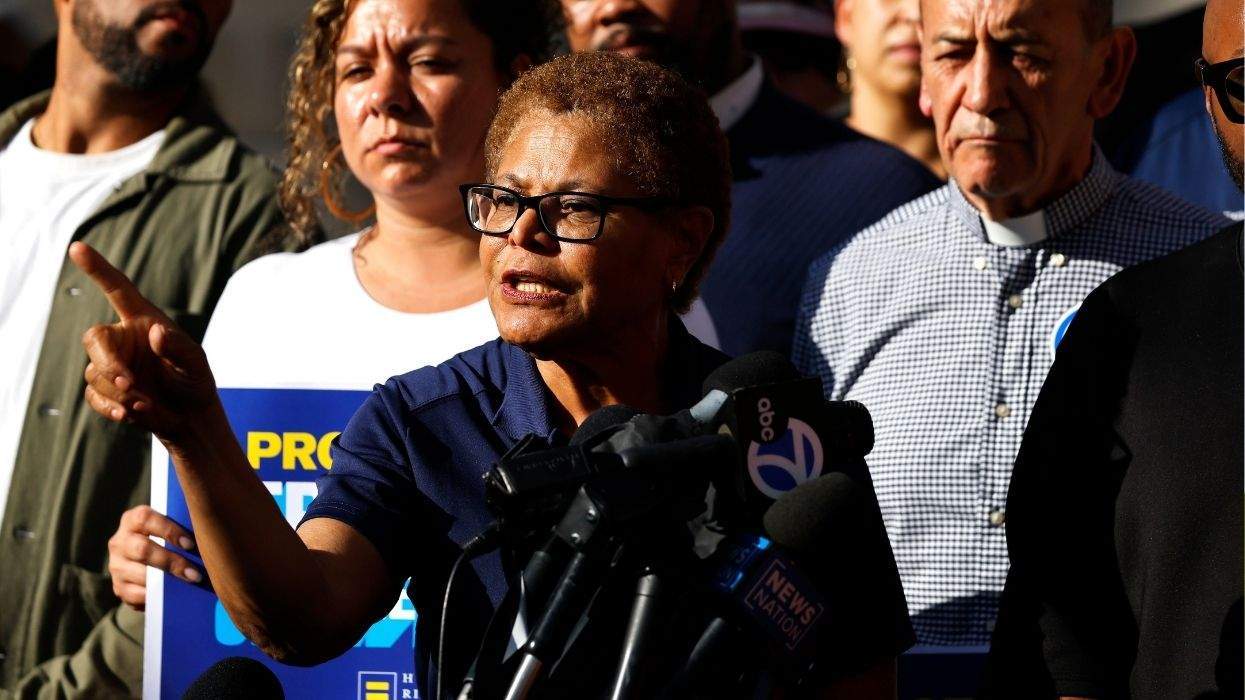On an early July afternoon in Connecticut, activist and advocate Kamora Herrington is on her back porch prepping for a Zoom talk for Kamora's Cultural Corner called "Black Trans Human Beings," facilitated by Rev. Louis Mitchell.
Just a few feet away from her, visual artist Kim Hinds Jr. (better known as Tree Sage) paints a piece dedicated to Elijah McClain, the young Black man killed by police in Colorado last summer. The case has gathered steam in the weeks since the police killings of George Floyd and others. (Tree Sage's finished mural dedicated to Breonna Taylor and George Floyd at Kamora's Cultural Corner is pictured above.)
Kamora's Cultural Corner -- a "physical and metaphorical" space created to "approach cultural humility through a Black queer and Afrocentric perspective" (as described in its mission) had just moved into a new home March 1, next to the multidisciplinary gallery and art cinema Real Art Ways in Hartford, Conn., when the pandemic changed things. But Herrington, who's spearheaded advocacy work at the intersections of the Black and LGBTQ+ communities for decades, remains resilient, continuing to do necessary work that also has a national reach. Even if that means KCC has returned to the humble location where it began five years ago.
"Kamora's Cultural Corner actually started on my back porch," says Herrington, who is a member of the National Black Justice Coalition's Leadership Advisory Council, a founding member of CT Black Women, and the mentoring program coordinator at the queer youth organization True Colors.
"We are back here literally right now -- I'm talking to you on my back porch on the corner," says Herrington, who dubbed KCC a "brave space," which delves into difficult conversations to move culture forward. "We've moved beyond safe space into brave space, which means we're flying by the seat of our pants. In order for real change to happen, that's where we need to be right now."
Although KCC was forced out of its official physical space amid the pandemic, it continues to offer a community for advocacy and activism through the work of queer Black artists as well as opportunities for a national dialogue about the intersections of being Black and queer, like with a Zoom conversation about Black trans lives. Herrington also mentions the work she's doing bringing people in to unpack issues, as with the white folks' discussion group, which is currently discussing Tara Conklin's novel, The House Girl.
"I'm finding that talking about race is hard for white folks -- getting queer white folks to talk about the racism inside the queer community...[even] getting queer people of color who are not Black to talk about the anti-Blackness and anti-Black racism within the larger queer community can be hard," Herrington admits. "Doing it through Zoom seems to make it easier for people. There's just enough distance for folks to be able to talk a little bit more. I feel really good about that."
Kamora Herrington, founder of Kamora's Cultural Corner, a space for queer Blacks artists, enjoys some fresh air and sunshine while social distancing.
KCC also helps to ensure that artists have the resources they need to live and create, especially during the pandemic, through its Patreon giving program that has dedicated its $10-and $18-per-month donor tiers strictly to fund artists whose livelihoods were decimated by the pandemic.
"All the artists we work with, everyone lost all of their gigs, all their funding, everything disappeared," Herrington says, adding that the Patreon program was already a part of KCC's structure.
"[With] this idea that as an LLC, as a social enterprise, we don't want to suck from the system," Herrington says of the purposeful decision to not become another one of Hartford's many nonprofits that don't pay taxes that feed back into the city. "We're not going to be a nonprofit and not pay our taxes, especially since right here in the city of Hartford, where our city doesn't have enough money anyway."
While Tree Sage continues to paint, Herrington leans into discussing the role of activists/artists in the community. She mentions Chris Cooper, the queer Black man in Central Park who was the victim of a racist white woman, Amy Cooper (no relation), who called the police on him when he simply asked her to leash her dog. Chris Cooper declined to press charges against his harasser for filing a false report, although the Manhattan district attorney has charged her anyway.
"Those of us who have chosen to be activists, we all have a way to share our truths out there loudly and authentically," Herrington says of activists, including KCC's artists. "We need to understand that we've got this major responsibility to be a voice for our brothers and sisters who can't."
"To get selfish about it, we need people to send us a check. The people who have the ability to send us checks are people who figured out a way to have a nice cushy job where they can sit in an office and write checks," she says. "That person has had to make compromises. We're working so that two generations from now, no one needs to make compromises anymore."
Meanwhile, complementing what Herrington says about KCC's vision, Tree Sage explains his vision behind the homage to McClain, adding that the reason he's able to paint as much as he does at the moment is due to help from KCC.
"The Elijah McClain portrait that I'm doing, I actually did it with him playing the violin because that was one of the parts when I went and read about his story that really stuck out to me," Tree Sage says of the massage therapist who played violin for lonely shelter kittens during his lunch breaks.
"I have the animals around him kind of outside their cages and everything. He has a glow around him, a widening aura. That's kind of like where I've reached right now. I'm just kind of sitting with it to see what else I want to add to really capture my message," Tree Sage says.
"Right now the main thing I'm thinking about is joy. I feel like that really is a testament to who he is and the kind of thing that we want to keep going and have going forward. That kindness, that love, that joy, and that creation."
